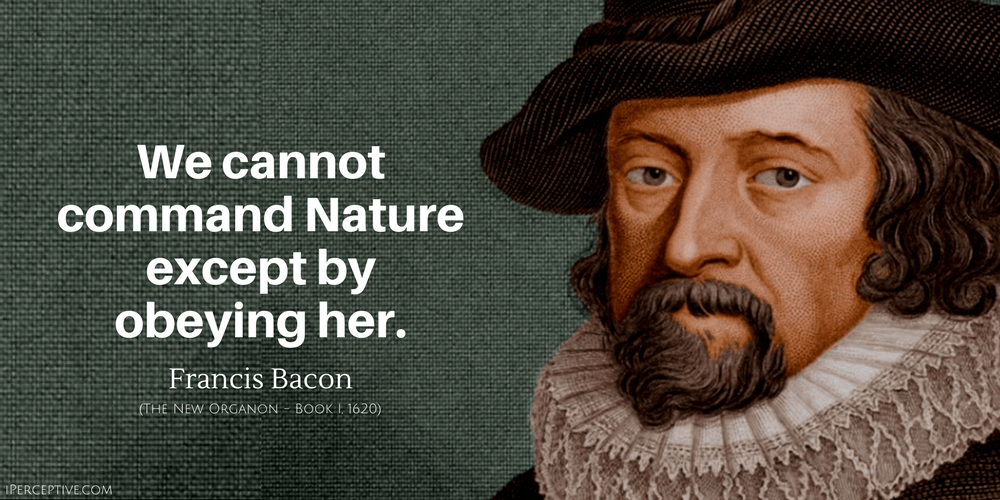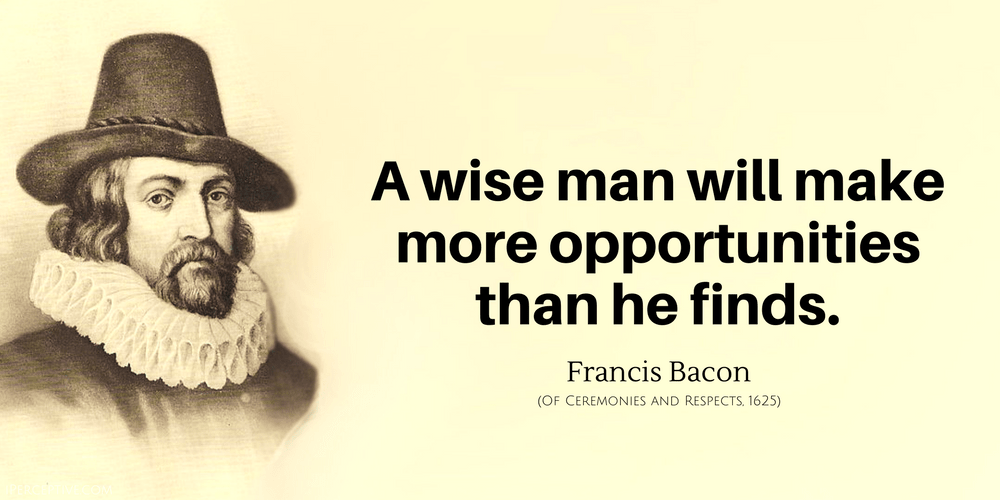Francis Bacon Quotes

We cannot command Nature except by obeying her.
Prosperity discovers vice, adversity discovers virtue.
Death is a friend of ours and he that is not ready to entertain him is not at home.
Nothing is terrible except fear itself.
Men fear death as children to go in the dark; and as that natural fear in children is increased by tales, so is the other.
To suffering there is a limit; to fearing, none.
Variant: Suffering has its limits, but fear none.
No pleasure is comparable to the standing upon the vantage-ground of truth.
If a man will begin with certainties, he shall end in doubts; but if he will be content to begin with doubts he shall end in certainties.
By far the best proof is experience.
The monuments of wit survive the monuments of power.
Who ever is out of patience is out of possession of their soul.
Human understanding is like a false mirror, which, receiving rays irregularly, distorts and discolors the nature of things by mingling its own nature with it.
Prosperity is not without many fears and distastes; and adversity is not without comforts and hopes.

A wise man will make more opportunities than he finds.
A man must make his opportunity, as oft as find it.
Science is but an image of the truth.
Be angry, but sin not. Let not the sun go down upon your anger. Anger must be limited and confined, both in race and in time.
Hurl your calumnies boldly; something is sure to stick.
It is in life as it is in ways, the shortest way is commonly the foulest, and surely the fairer way is not much about.
Death hath this also; that it openeth the gate to good fame, and extinguisheth envy.
Toward the effecting of works, all that man can do is to put together or put asunder natural bodies. The rest is done by nature working within.
The world's a bubble, and the life of man.. less than a span.
Who then to frail mortality shall trust
But limns the water, or but writes in dust.
What then remains but that we still should cry
Not to be born, or, being born, to die?
But words plainly force and overrule the understanding, and throw all into confusion, and lead men away into numberless empty controversies and idle fancies.
Children sweeten labours, but they make misfortunes more bitter.
Virtue is like precious odours, - most fragrant when they are incensed or crushed.
Seek first the virtues of the mind; and other things either will come, or will not be wanted.
I open and lay out a new and certain path for the mind to proceed in, starting directly from the simple sensuous perception.
But by far the greatest obstacle to the progress of science and to the undertaking of new tasks and provinces therein is found in this - that men despair and think things impossible.


